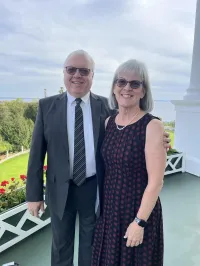
What if Our Beliefs About Developing Ourselves and Others are Built on Flawed Assumptions?
“What would happen if we studied what was right with people versus what’s wrong with people?”
Don Clifton
The popular notion is that people can excel at anything if they try hard enough. While we can and should try anything we wish to, long-term success will elude us unless we have a basic talent for the endeavor. All of us have a unique set of strengths. How have you experienced this in your work, ministry, and life?
A strengths-based approach is different. It flips our current culture of thinking on its head. This new way of thinking starts by focusing on what people do well. Then we work on emphasizing and developing those strengths to equip all of us to become even more productive.
From our experiences in school, our time at work in the church or elsewhere, activities and sports, and everywhere else in our lives, the focus often is on what we are not doing well and what we need to do to improve. The decades of Gallup research and training demonstrates our need to adjust our focus to those areas where we are already strong.
Here are four key terms Gallup uses in relation to this shift in development:
Talent: your naturally recurring patterns of thought, feeling, or behavior. Your various themes of talent are what the CliftonStrengths assessment actually measures.
Knowledge: consists of facts and lessons learned. There are two main types of knowledge. 1) Factual knowledge; and 2) Experiential knowledge.
Skills: the steps of an activity. Skills bring structure to experiential knowledge and enable you to avoid trial and error.
Strengths: the combination of talents, knowledge, and skills. A strength is the ability to consistently provide near perfect performance in a specific activity.
As a leader in ministry, it is important for you to make the investment in yourself to continue building on your God-given strengths and growing into the leader God is calling you to become this season.
Thank you to Ken Willard, PCC, Gallup Certified Strengths Coach, Published Author, and Director of Congregational Vitality at West Virginia Conference UMC and author of this guest blog.

